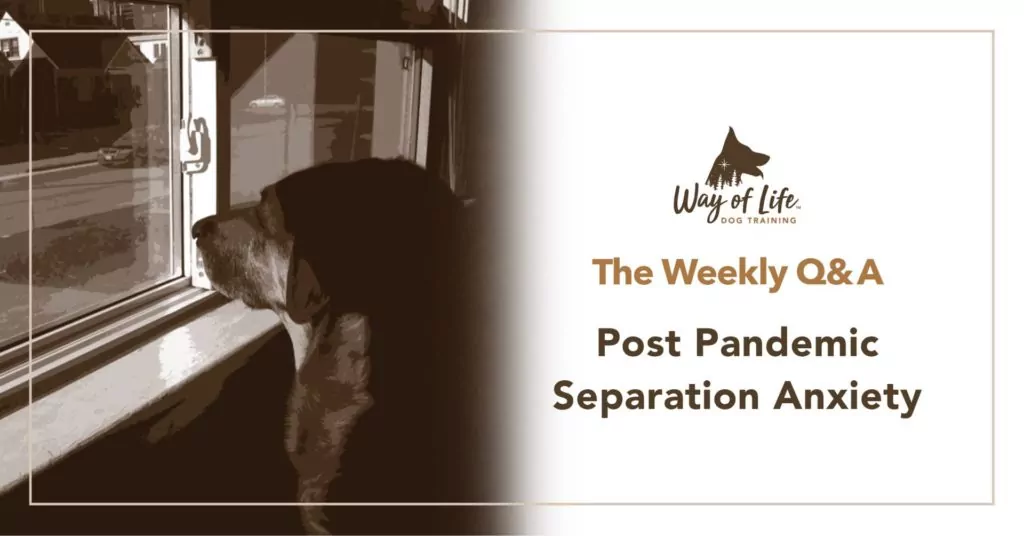
Q: Will my dog develop separation anxiety when the pandemic settles and we go back to the office?
A: Since the onset of the COVID-19 pandemic, many employees have shifted to remote work, a workplace trend that had existed for some time but became more prevalent. Many people who already had pets relished the opportunity to spend more time with them. Others went and got the cats and dogs they didn’t feel they had time to care for with their previous work arrangements.
The rush to acquire dogs during the pandemic lockdown led to the term “COVID puppy” and raised various questions about the fate of these dogs once people return to the office. One commonly asked question is whether the dogs will develop separation anxiety because they’ve been accustomed to having us around.
Separation anxiety, or extreme fear at being alone and/or separated from significant individuals, is considered a serious matter, especially if associated with dangerous behaviors such as destructiveness or aggression. Separation anxiety can reach such a level as to constitute a non-medical reason for euthanasia.
To deal with this issue, behaviorists use behavioral modification protocols while vets prescribe psychotropic drugs. Separation anxiety is seen as a “condition” inherent in the dog, an illness that has little to do with context or relationship quality. In contrast, I see it as a response, a reaction to a certain way of life. In my mind, there are no protocols or prescriptions that can heal the despair and relational angst that underlie this kind of behavior. When the human-dog relationship is built on confidence, strength, and independence, dogs will mirror these very attitudes and never come close to developing separation anxiety.
Therefore, my answer to the question of whether dogs will develop separation anxiety once we return to the office depends on what we do while we’re working from home. It depends on the lifestyle that the dog has gotten accustomed to, and this includes both our attitude towards the dog and how we live with the dog day in and day out.